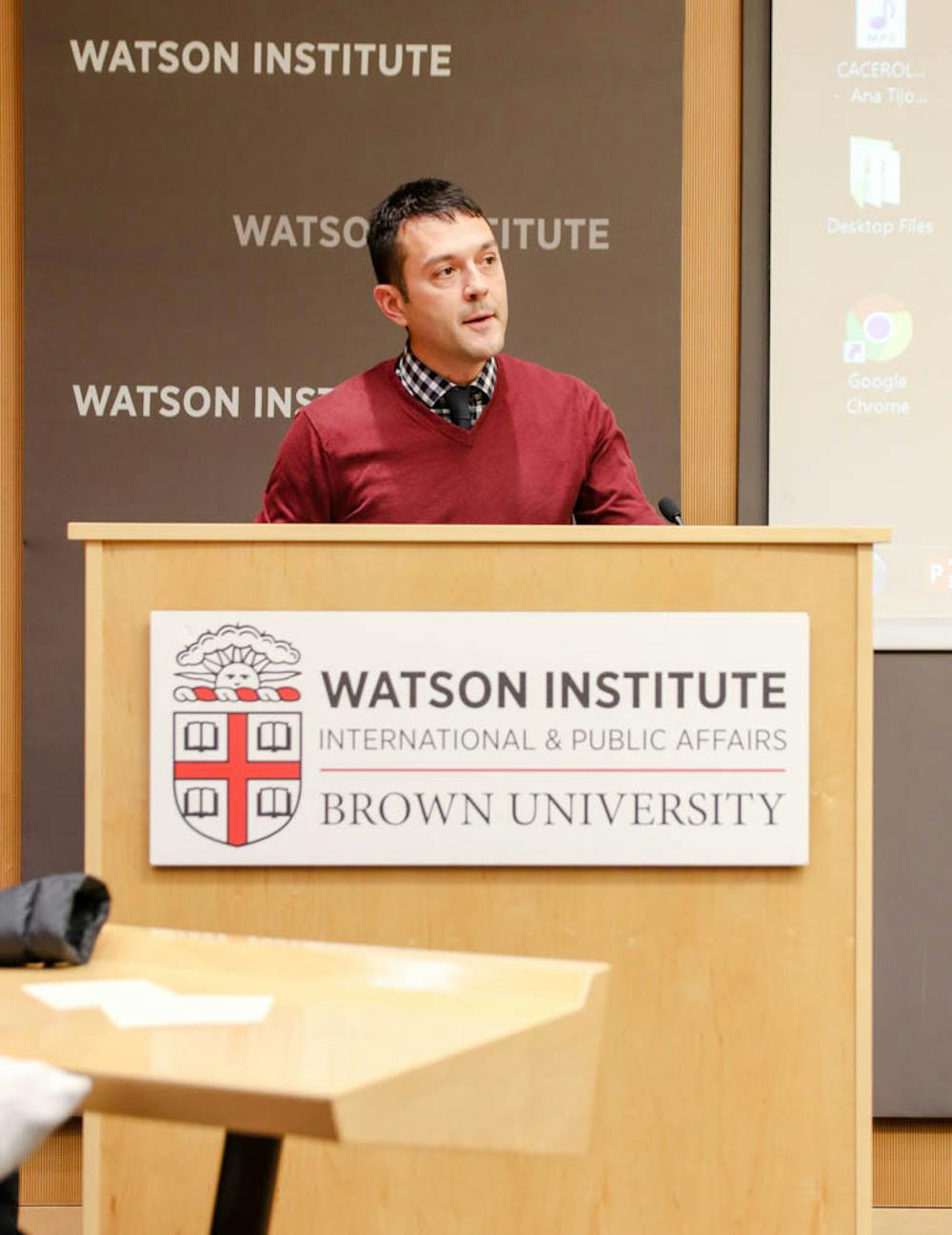Yesterday night, Pamela Ipinza, an employee of the Museum of Memory and Human Rights of Chile, stayed behind at her job in Santiago after many of her colleagues had gone home for the evening. Across Chile, people were preparing for a national strike that is expected to sweep over the country today.
“I am the only person here,” she said over video chat to the audience of an event titled “Chile Despertó: Understanding the Social Crisis in the Latin American ‘Oasis,’” hosted Nov. 11 by the Center for Latin American and Caribbean Studies.
Today’s strike follows weeks of countrywide protests that spread from Santiago across Chile beginning Oct. 18, the largest protests since Chile’s transition to democracy in 1990. The strikes were triggered by a student protest over the government’s increase of metro fares on Oct. 6. Out of the million protesting in Santiago, hundreds have been injured by President Sebastián Piñera’s military crackdown. This is the first time since Augusto Pinochet’s dictatorship that the government has deployed the military to quell protests.
Panelists at yesterday’s event discussed the historical, social and economic buildup that led to this month’s unrest, drawing particular attention to recent social movements that have helped Chileans develop strategies of mass mobilization. They mentioned as examples the 2006 Penguin Revolution, the student protests of 2011 and the feminist strikes of 2017 and 2018, among others.
The event soon turned into a conversation in which attendees, many of them from Chile, reflected on their own experiences engaging with activism back home and discussed how they perceived their country’s unrest from abroad.
“When we were starting to think about this event, we were trying to go against this idea that no one could have predicted this moment,” said Paula Pacheco Soto ’20, the event’s organizer. But in her opinion, “maybe (people) haven’t been paying enough attention.”
Although the Gini index, which measures wealth inequality, shows that Chile’s inequality score has decreased in recent years, many Chileans feel frustrated because even living above the poverty line presents economic struggles, said José Belmar GS, a graduate of the University of Chile. “Things that are supposed to be social rights,” such as access to water or education, are unevenly distributed, he added. People are thinking: “If I’m working honestly, why don’t I have access to the most basic things?”
Daniel Rodriguez, assistant professor of History, said that, “The terms of the (historical) memory debate continue to revolve around accountability for human rights violations (committed during Pinochet’s regime), sidestepping the fact that one of the effects of these human rights violations was the continued disavowal of social rights in Chile.”
During the panel, Pacheco Soto talked about her own experience with the 2011 student movement, where protesters learned to organize marches, tomas — which are school sit-ins — performative protests and extra-institutional assemblies known as cabildos. “You understand how people were able to organize so quickly (this month) because these methods have existed for several years. People know how to organize.”
Though the event was intended to inform any interested attendees, it quickly evolved into a space where Chileans could share their mutual frustrations and hopes about the last month of protests. “Organizing the event came from a place of frustration. Other people don’t know and don’t understand what’s going on,” Pacheco Soto told The Herald. “I was hoping it would work out, but wasn’t expecting so much interaction, which was amazing.”
“We are all here from abroad trying to understand what’s going on,” Belmar said.
“We’re all in this together,” agreed Ipinza over the screen. When one of the audience members asked her about how protesters have been showing care for each other on the ground, Ipinza explained that they keep one another informed about how to interact with law enforcement. She searched for an English phrase to describe “levantar los brazos when the police te apunta with a gun.”
“Raising your arms,” various audience members suggested.
María de la Luz, a Chilean native who lives in Boston, came to Providence just to attend the event. “I feel really frustrated being away. I’m trying to engage with as many opportunities as I can. I think it’s important so people outside of Chile can engage with this,” she told The Herald.
“I can’t imagine not being here,” said Yara Doumani ’22. “The movement extends beyond Chile.” Doumani, who is not Chilean, is considering studying abroad in Chile next semester. “I came here to be informed and to learn. It was really a collective experience. That was really the point.”
“There are so many things happening. The people are in the street every day. It’s very hard for us, so thank you for listening,” Ipinza told the audience. At the end of the event, the lights were turned out. In the dark, audience members listened to the ambient sounds of the protests in the streets.





